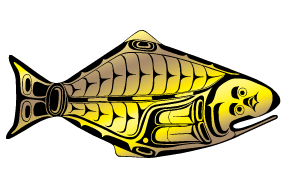The IPHC conducts an annual Fishery-Independent Setline Survey (FISS) on a 10×10 nautical mile grid typically from Oregon northward to the Gulf of Alaska, along the Aleutian Island chain, and into the Bering Sea in depths ranging from 30 to 500 m. The geographic range of the FISS is sometimes expanded south into California, north onto the Bering Sea flats, or into more shallow and deeper depths, depending on objectives for that year.
Beginning in 2000, the IPHC conducted a pilot project looking at the practicality of collecting oceanographic profile data alongside fishery data at the longline survey stations. The project was expanded coastwide starting in 2009. Profiles were taken at each station immediately prior to hauling the longline gear so that oceanographic data collection is coincident with the haul. A profile was attempted at all stations within the prescribed depth range regardless of whether they were standard or temporary expansion stations. The data collected were surface to depth profiles of pressure (depth), temperature, conductivity (salinity), dissolved oxygen, pH, and chlorophyll a concentration.
For details on IPHC Water Column Profiler deployment procedures and maintenance, please refer to the following manual:
Document
Title
Availability
Water Column Profiler Data
| *The COVID-19 pandemic led to disruptions in gear readiness and a reduced FISS, resulting in a reduced oceanographic data collection footprint. | |||
| Note – If you are having trouble viewing an individual spreadsheet, please download the file or switch browsers. |

